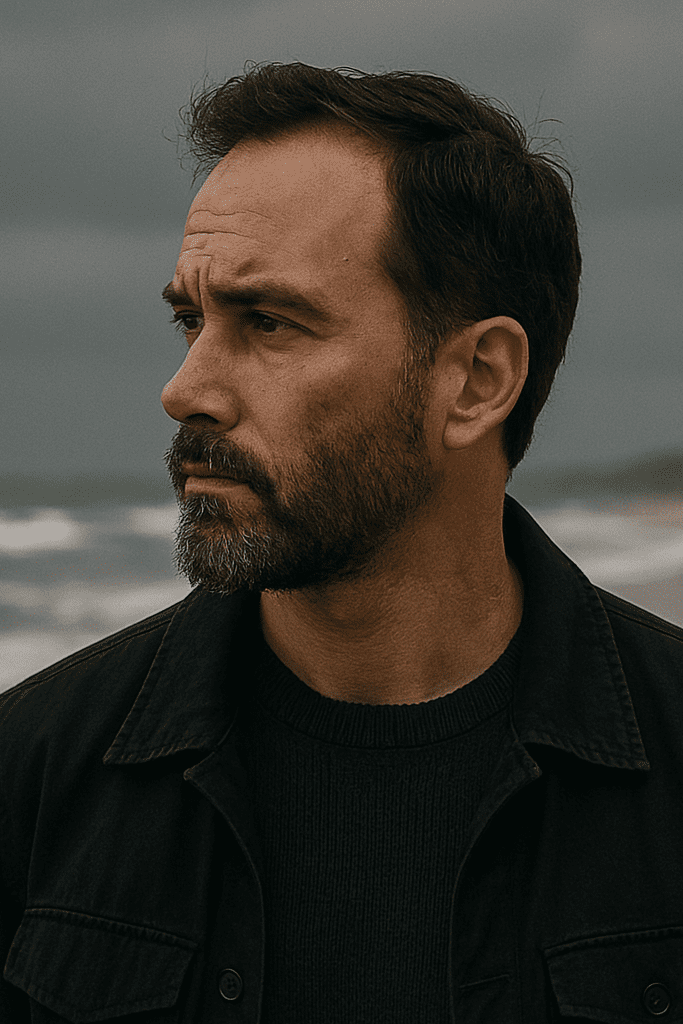
Writing Elias (and the Small Things That Matter)
Writing a character with a small dick
A love letter to the body that isn’t big—but is still enough
Some characters arrive like storms.
Loud. Demanding. All jawline and hunger.
They don’t knock.
They don’t wait.
They just are—fully-formed—and dare you to catch up.
Elias, in His Theirs Enough wasn’t like that.
Elias came in small.
Not small in presence. Never that.
But in the way he moved.
The way he folded himself in, as if practicing vanishing.
The way he took up less air, less noise, less want.
And yes—part of that was his body.
He has a small dick.
Not symbolically. Not poetically. Just… factually.
And writing that?
Letting him have that?
It was harder than I expected.
Not because I was ashamed.
But because I had to unclench—had to untangle all the myths I’d swallowed whole about masculinity, worth, and what makes a body enough to be loved.
We’re not supposed to say it.
Not plainly.
Not kindly.
We’re supposed to imply. To compensate. To distract.
But Elias wouldn’t let me do that.
He wouldn’t be rewritten.
Wouldn’t be made tragic or comic or “overcome.”
He just was.
And he wanted.
Small Doesn’t Mean Less
His smallness lives in more than size.
It lives in the ache of having been made to feel less.
Every sideways glance. Every choking silence. Every fucking locker room joke.
He’s the man who’s been taught to apologize for the body he brings to bed.
To brace for disappointment.
To lower his voice when desire slips out.
And still…
He opens.
He kneels.
He begins again.
There is power in that.
Not the kind that throbs or threatens.
Not conquest or cock-measuring.
But the quieter kind.
The kind you almost miss, until you’re undone.
writing a character with a small dick
Writing a character with a small dick meant writing against a tide of cultural noise.
It meant telling the truth in a room where silence had always been safer.
It meant trusting that vulnerability is hotter than bravado—and more enduring, too.
Because Elias isn’t trying to perform masculinity.
He’s not angling for alpha.
He’s not fucking to impress.
He’s fucking to connect.
To worship.
To feel chosen in a world that told him he couldn’t be.
And the people who love him?
They don’t love him despite it.
They love him because of it.
Because he softens under touch.
Because he listens.
Because his desire isn’t a weapon—it’s an offering.
A big dick might split you open.
But Elias?
Elias unravels you.
With his mouth.
With his patience.
With the way he makes you feel seen—down to the marrow.
The Body Isn’t the Point—But It Matters
I didn’t write Elias to prove something.
I wrote him because he’s real.
Because I’ve known men like him.
Because I’ve been him.
I’ve been the boy who wondered if his size would be enough.
If desire would turn to pity.
If the body I brought to bed would ever be wanted on its own terms.
And what I learned—what Elias reminds me—is this:
The sexiest thing about a body isn’t what it holds.
It’s what it offers.
Not volume. Not girth. Not reach.
But honesty.
Responsiveness.
Reverence.
Quote from Elias, Book Three (unpublished)
“You looked at me like I didn’t have to be more than what I was.
And I still begged.
But this time, it wasn’t to be forgiven.
It was to be kept.”
When Elias begs, it’s not weakness.
It’s holy.
Because what he’s saying, with every tremble, every moan, every slow crawl of fingers across skin—is:
I know I’m enough.
Will you let me be?
And when the answer is yes?
God, it’s better than any fantasy.
It’s real.
READ MORE: Body Dysmorphia in Men, and the Truth Behind the Mirror



